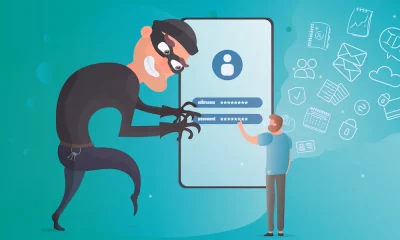Security
What small business owners should know about Cybersecurity?

Data security is critically important for all kinds businesses. Regardless of company size and nature of the products and services, company owners have to pay attention to secure their IT infrastructure. Installation of CCTV cameras and sophisticated door locks are not enough when it comes to protecting private business data from hackers and online data breaches. Instead, it requires an application of security measures like installation of antivirus and encryption software, malware protection and secure passwords.
What happens during a data breach?
During a data breach, hackers gain access to confidential business data and private information about company owners, clients, website and apps. Cybercriminals are always looking for loopholes in the system security and bypass network security remotely as soon as they find a nick.
Why do small enterprises ignore online security?
When it comes to ensuring tight security and unauthorised access to business data, multinational companies make substantial efforts to implement security measures to protect their data and IT infrastructure. In contrast to them, small companies often ignore to develop security protocol against possible online threats.
The primary reason for this carelessness is lack of awareness and shortage of funds. Moreover, they mistakenly assume that cybercriminals don’t target small organisations they are only interested attacking large enterprises. Though small companies don’t have financial information of millions of users, still they carry more digital data as compared to the individual consumer. This is the reason hackers love targeting small setups.
Here I am sharing some critical information every small business owner must know about cybersecurity.
What is a cyberattack?
A cyberattack can be defined as illegal attempt to steal and exploit private data like customer credit card information, unauthorised access to an email account, bank accounts and company information with an intention to use it for personal benefits.
Though the basic aim of hackers is to access company data, a cyber attack can be of different types. Here is the list of few highly exhaustive attacks every business owner must be aware of to implement security measures and policies.
Advanced persistent threat (APT) attacks into a network for long-term. To avoid being detected its attack consists of several phases.
Distributed Denial of Service (DDoS) involves intentional overloading of servers with requests, with an aim to shut down the target network or website.
Inside attack occurs when a company employee with administrative rights misuses his login credential to damage database and records to spoil the business image. Often former employees who left on bad terms are involved in insider attacks.
Malware or malicious software is an umbrella term used for harmful software, which is used to damage target computers.
Password attack is decoding of passwords to access data. These threats are further divided into three types. Brute-force attack-guessing password until attackers get access.
Dictionary attack-uses a software program to try a combination of dictionary word for decoding. Keylogging-it tracks user keystrokes for IDs and passwords.
Phishing collects sensitive information like login IDs & passwords, credit-card information from a fake website whose link is shared to target via email.
Ransomware is a malware, which locks the computer or network it attacks and demand owners an amount as a ransom to decrypt data.
What security solutions are available?
A wide range of security solutions is available to protect computers and digital data stored on these servers. All these solutions and tools protect networks and data servers from online threats. Antivirus, Firewalls, encryption software, two-step authentication, password security software are few common security solutions available for businesses.
Besides using these tools, securing a data backup at a different location is the best way to recover the whole data in case of data theft. Remember these protection measures must be implemented before setting up a database. For example, encryption software can encrypt stored financial data and other information to limit unauthorised access. Besides this, smaller companies with a limited budget can opt for cyber security insurance to avail cost-effective security.
Endnote: These are essential things, business owners should know to design and implement the best cybersecurity without breaking their budget. Here’s a good article on what to do if your website is hacked: IT Security Basics: My Website Was Hacked What Do I Do Now?






